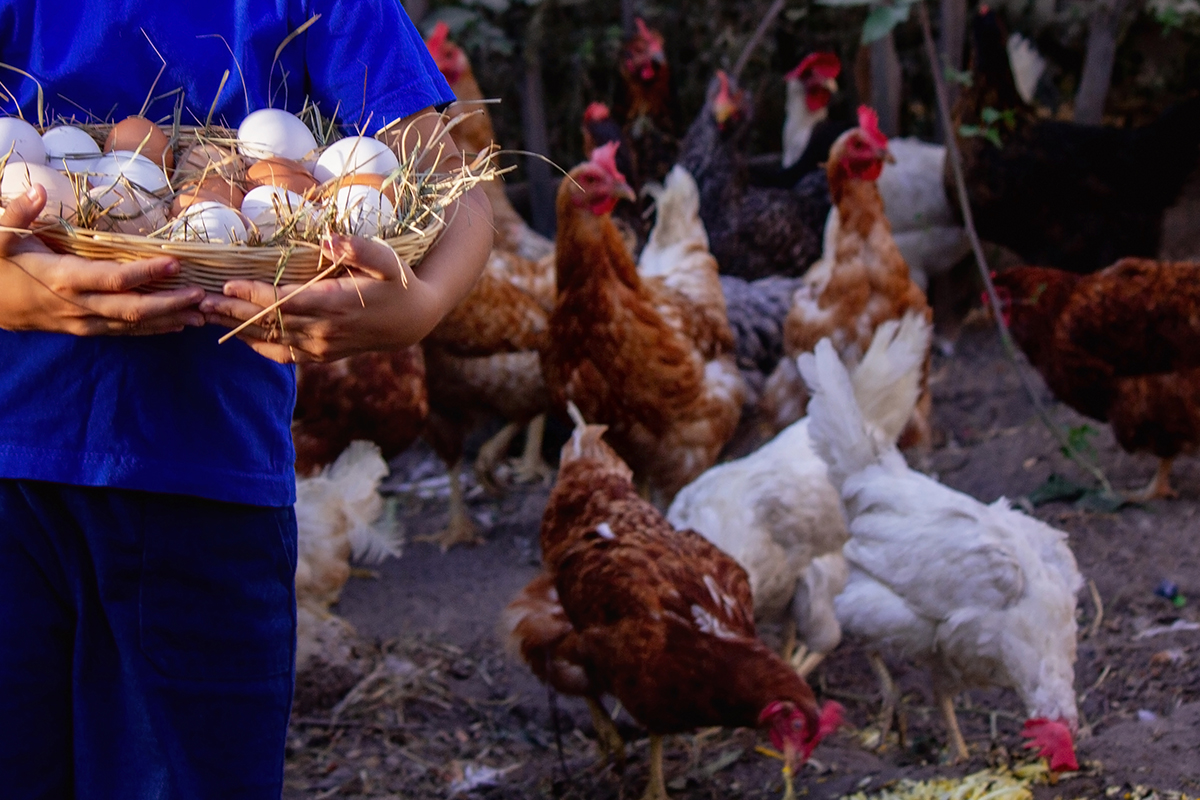Last Updated on May 3, 2024 by Admin
A large number of business owners and farmers view poultry farming as a business opportunity that is both feasible and profitable. An activity vital to the agricultural foundation of many economies, poultry farming comprises the growing of a variety of birds, including chickens, ducks, turkeys, and geese, largely to obtain fresh eggs and meat. Between 1961 and 2020, global poultry meat production rocketed from 9 to 133 million tonnes, and egg production surged from 15 to 93 million tonnes, marking significant growth in poultry farming and egg production, particularly in Asia. This surge underscores the growing importance of poultry farming within the agricultural sector.
The article will throw light on the necessary steps for those who are interested in poultry farming. To better comprehend the complexities of the poultry industry, it provides a step-by-step guide that defines the important procedures and offers practical advice.
Understanding What is Poultry Farming
What is poultry farming? To put it simply, it is the agricultural practice of growing birds to produce eggs and meat for commercial purposes. This agricultural sector has experienced extraordinary growth due to the comparatively low startup costs, the rapid turnover of chicken products, and the ever-increasing demand for these commodities. The poultry farming industry ranges from small backyard operations to large-scale commercial installations.
How to Start Poultry Farming
- Conduct Thorough Research
Understanding every detail of the poultry farming sector is necessary before you begin a career in it. Learning about the breeds of chicken, being familiar with their care, and being aware of the market needs are all factors that need to be considered. - Choose Your Poultry Sector
Poultry farming has specialised sectors, like encompassing layers (for egg production), broilers (for meat), and dual-purpose breeds (for both eggs and meat). Decide which sector you want to choose according to your goals, resources, and market needs. - Develop a Business Plan
Have a well-thought-out business plan that covers your sector, target market, operations, and finances. This plan will be your guiding map and can help secure financing if needed. - Secure Financing
The cost of poultry farming depends on the scale and type of your operation. Calculate your initial setup costs, including land, housing, feed, chicks, and equipment, and in case you need financial options, then look for available options. - Set Up Your Farm
Choose a suitable location considering the birds’ health and safety. Make sure your poultry farm has the desired space, ventilation, and protection. - Purchase Quality Chicks
Invest in healthy, high-quality chicks from reputable suppliers. Ensure that the breed you choose meets your objectives (meat, eggs, or both). - Implement Proper Care and Management
Regular feeding, clean water access, disease management, and maintaining proper hygiene should be maintained within the farm to ensure the health of your birds.
Benefits of Poultry Farming
Poultry farming has numerous benefits, making it an attractive venture. It requires a relatively lower initial investment than other farming types, offers quick returns on investment due to poultry’s short maturity period, and has a high demand for meat and eggs. Another benefit of poultry farming is that poultry waste has become a valuable organic fertilizer, contributing to a sustainable agricultural practice.
Managing the Cost of Poultry Farming
Understanding and managing the cost of poultry farming is needed for the profitability and sustainability of your business. The cost includes initial setup, day-to-day operations, unexpected expenses, etc. Your careful financial planning can significantly impact your cost optimization. One of the initial steps in how to start poultry farming involves making an overall budget that includes costs such as purchasing chicks, feed, housing construction or rental, healthcare, and labour.
To manage the cost of poultry farming, you can also consider bulk purchasing of feed or cooperative arrangements with other farmers to reduce expenses. By investing in energy-efficient heating, lighting, and ventilation systems, you can also lower operating costs. Furthermore, adopting sustainable practices such as composting poultry waste can transform potential disposal costs into an additional financial benefit or a cost-saving method by providing organic fertilizer for crops.
Another method to consider is the possibility of government grants or subsidies for agricultural ventures. Financial thoughtfulness and strategic planning can help manage the cost of poultry farming, making the venture more resilient to market fluctuations and operational challenges.
By planning expenses and exploring cost reduction and efficiency methods, entrepreneurs can manage the financial aspects of poultry farming more effectively. It ensures the business’s sustainability while maximizing profits. Managing the cost of poultry farming is essential for long-term success in this industry.
Maximize the Benefits of Poultry Farming
The benefits of poultry farming extend far beyond financial gain. This agricultural practice contributes towards food security, providing a reliable source of protein through eggs and meat. For individuals trying to know what is poultry farming and how to start poultry farming, it’s important to recognize these benefits, which include economic, nutritional, and environmental aspects.
Economically, poultry farming can be more profitable as compared to other agricultural practices. This aspect appeals to new entrants in the field, offering them a clear, visible path to entrepreneurship with good growth potential. Additionally, poultry farming contributes to local economies by creating jobs and supporting other related businesses, such as feed production and veterinary services.
Nutritionally, poultry farming enriches diets with high-quality proteins, vitamins, and minerals, which help combat malnutrition and improve overall health. It is especially vital in areas with limited access to diverse food sources, where it can significantly affect nutritional outcomes.
Environmentally, sustainable poultry farming practices can minimize the ecological footprint of meat production. For example, techniques such as rotational grazing, integration with crop production for natural pest control and fertilization, and using renewable energy sources improve poultry farming operations’ sustainability.
For those thinking how to start poultry farming, understanding these benefits of poultry farming can help their venture’s success and contribute positively to their communities and the environment.
Marketing Your Poultry Products
Effective marketing is essential to successful poultry farming. A strong marketing strategy can help differentiate your products in a competitive market. It might include focusing on niche markets, such as organic or free-range poultry products, and using social media and local farmer’s markets to build a loyal customer base. Additionally, understanding and following local regulations and certifications can add value to your products.
Become Tech Savy
Modern technology is improving poultry farming operations. From automated feeding and watering systems to climate-controlled environments, technology can help improve your farm’s efficiency and productivity. Software solutions for farm management can also help you monitor your bird’s health and productivity, manage your finances, etc.
Ongoing Education and Networking
New studies and technologies are always coming out in the poultry world. Stay updated through ongoing education, attending industry workshops, and networking to get valuable insights and be open to opportunities for collaboration. Joining reputed training institutions to get insight into poultry farming can offer you valuable support and resources.
Key Takeaways
- Poultry farming offers a venture full of opportunities for growth.
- To succeed in this, you need to know what poultry farming is, careful planning, and a promise to keep yourself informed.
- The benefits of poultry farming include relatively low startup costs, quick returns, and a high demand.
- Effective management and marketing strategies are important for your poultry farming venture.
Conclusion
If you want to start your own agriculture business while planning to earn high returns, then poultry farming is a good way to start. Like other business ventures, you need to work hard, do your research, and be willing to learn and adapt to the industry’s unique needs for a successful start and a profitable existence. Learning what is poultry farming, understanding how to start poultry farming, knowing the benefits of poultry farming, and carefully managing the cost of poultry farming are steps toward success in this field.













